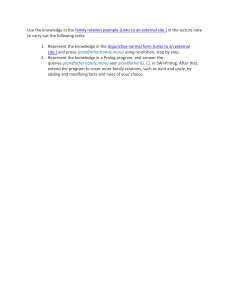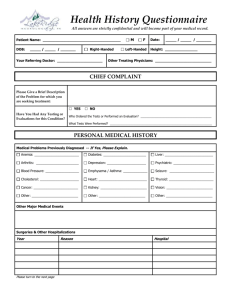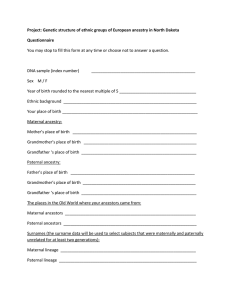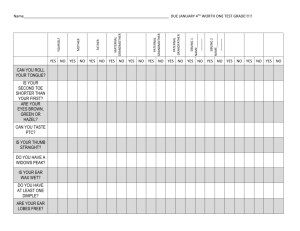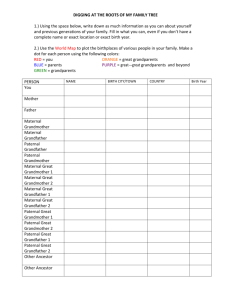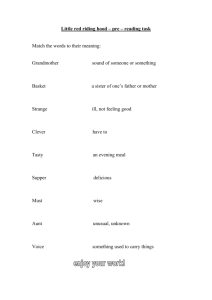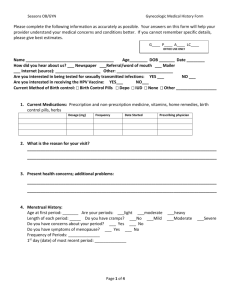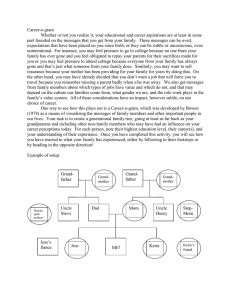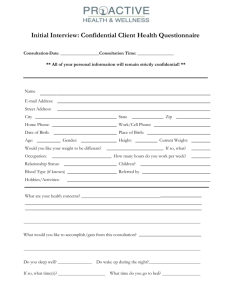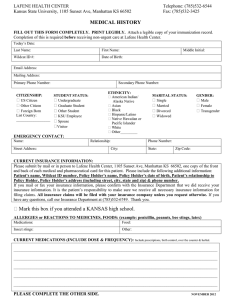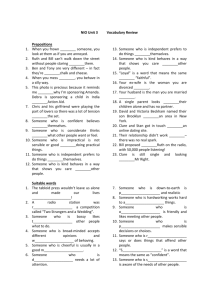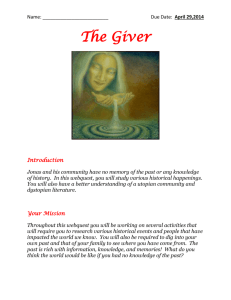My Literacy Autobiography
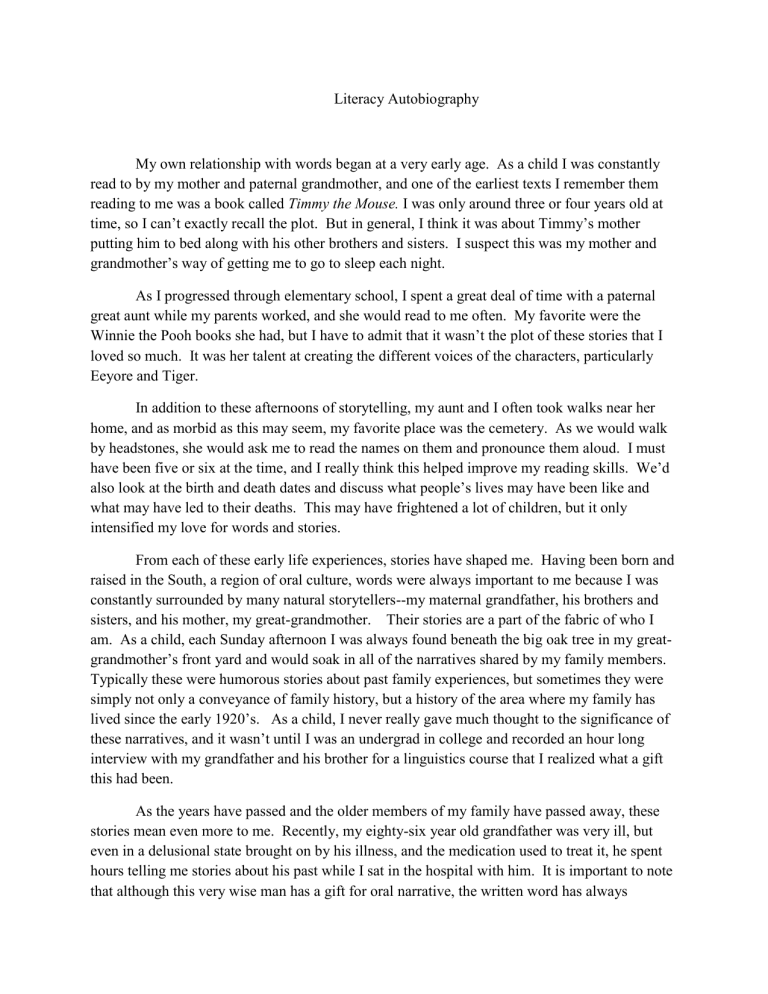
Literacy Autobiography
My own relationship with words began at a very early age. As a child I was constantly read to by my mother and paternal grandmother, and one of the earliest texts I remember them reading to me was a book called Timmy the Mouse. I was only around three or four years old at time, so
I can’t exactly recall the plot. But in general, I think it was about Timmy’s mother putting him to bed along with his other brothers and sisters. I suspect this was my mother and grandmother’s way of getting me to go to sleep each night.
As I progressed through elementary school, I spent a great deal of time with a paternal great aunt while my parents worked, and she would read to me often. My favorite were the
Winnie the Pooh books she had, but I have to admit that it wasn’t the plot of these stories that I loved so much. It was her talent at creating the different voices of the characters, particularly
Eeyore and Tiger.
In addition to these afternoons of storytelling, my aunt and I often took walks near her home, and as morbid as this may seem, my favorite place was the cemetery. As we would walk by headstones, she would ask me to read the names on them and pronounce them aloud. I must have been five or six at the time, and I really think this helped improve my reading skills. We’d also look at the birth and death dates and discuss what people’s lives may have been like and what may have led to their deaths. This may have frightened a lot of children, but it only intensified my love for words and stories.
From each of these early life experiences, stories have shaped me. Having been born and raised in the South, a region of oral culture, words were always important to me because I was constantly surrounded by many natural storytellers--my maternal grandfather, his brothers and sisters, and his mother, my great-grandmother. Their stories are a part of the fabric of who I am. As a child, each Sunday afternoon I was always found beneath the big oak tree in my greatgrandmother’s front yard and would soak in all of the narratives shared by my family members.
Typically these were humorous stories about past family experiences, but sometimes they were simply not only a conveyance of family history, but a history of the area where my family has lived since the early 1920’s. As a child, I never really gave much thought to the significance of these narratives, and it wasn’t until I was an undergrad in college and recorded an hour long interview with my grandfather and his brother for a linguistics course that I realized what a gift this had been.
As the years have passed and the older members of my family have passed away, these stories mean even more to me. Recently, my eighty-six year old grandfather was very ill, but even in a delusional state brought on by his illness, and the medication used to treat it, he spent hours telling me stories about his past while I sat in the hospital with him. It is important to note that although this very wise man has a gift for oral narrative, the written word has always
confounded him. A product of rural farm life and the great depression, he is essentially illiterate because he was forced to quit school in the fourth grade to work on the family farm.
Words and stories have always been an important part of my life, and all of these early experiences have shaped my definition of literacy. My ability to read and to communicate my own stories has aided me in not only understanding myself and my own family more, but also helped me develop an understanding of the human condition and the ways of the world at a very early age. These feelings were only intensified by many of the outstanding teachers and professors through the years that served to reinforce these feelings.
I think I grew to understand rather quickly that words were powerful things and deserved our respect, and I believe this is why I have developed such a passion for the teaching of writing and literature. I want to help students develop this understanding as well. Literacy is the ability to communicate effectively using the spoken and written word as well as the ability to analyze using critical thought what one has written or read as well. I have been blessed to have individuals in my life that valued these things, and perhaps in some cases because they were abilities they sometimes lacked.
